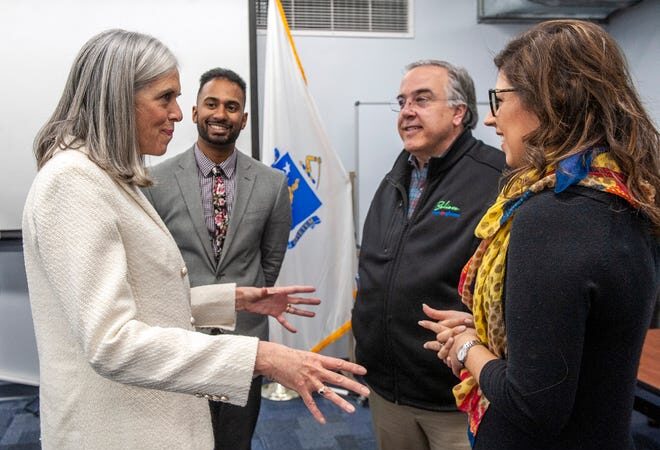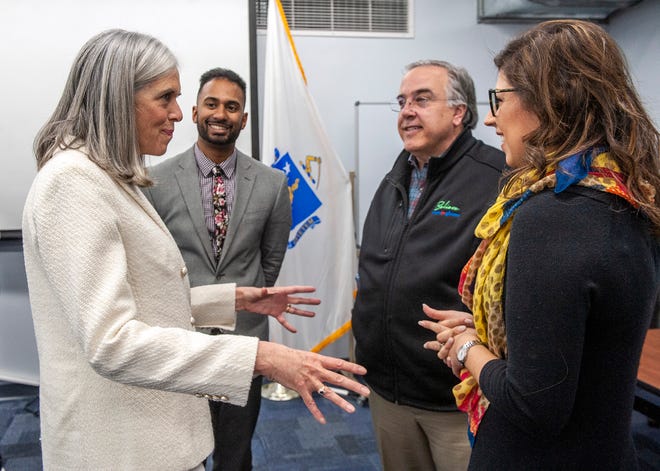
FRAMINGHAM — City officials expressed enthusiasm in working with U.S. Rep. Katherine Clark on a new program that would allow local merchants to access grant funding to enhance their businesses.
Framingham officials met with Clark Tuesday at the MetroWest Regional Transit Authority headquarters for a tour of the Blandin Avenue facility and a discussion with local stakeholders. The focus was to inform Clark of the need to secure federal funding to create a micro-enterprise fund for local businesses.
The idea was developed by Reyad Shah, executive director of Downtown Framingham Inc., a grant-funded program that works to promote and facilitate economic success in downtown Framingham. Shah was assisted by state Rep. Priscila Sousa, D-Framingham, who helped get Clark’s attention about federal funding to assist businesses.

“We are looking at how to fund small business — how can we create an additional micro-enterprise grant for businesses to be able to apply for?” Shah said. “We are looking at ways to continue to help businesses on a more granular scale. We are meeting here today to see how we can be supportive for funding.”














